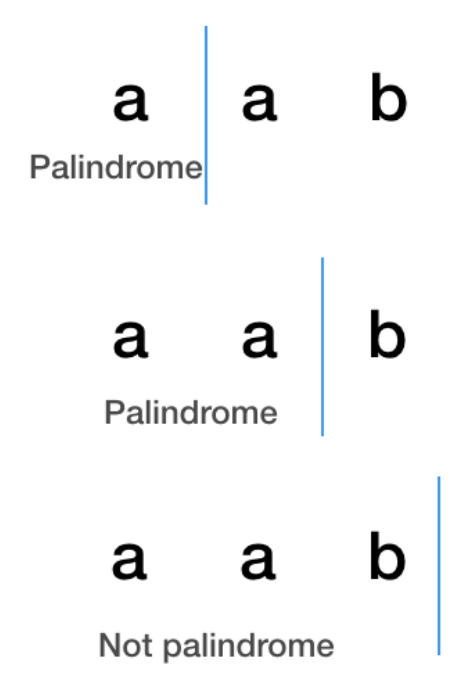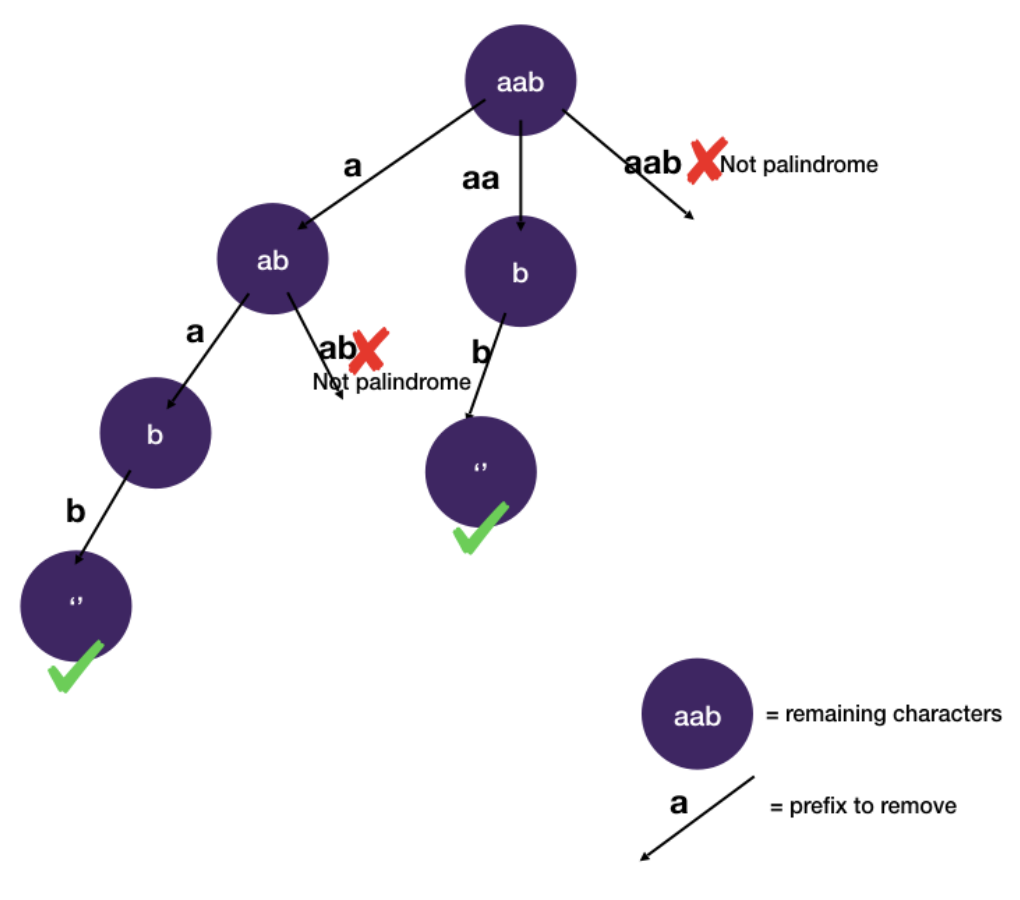Backtracking: Pruning
Palindrome Partitioning
Given a string s, partition s such that every substring of the partition is a palindrome
Return all possible palindrome partitioning of s
Example 1:
Input: aab
Output:
[
["aa","b"],
["a","a","b"]
]
function partition(s) {
const ans = [];
dfs(s, ans, s.length, 0, []);
return ans;
}
function isPalindrome(word) {
return word === word.split("").reverse().join("");
}
function dfs(s, ans, n, start, curPath) {
if (start === n) {
ans.push(curPath);
return;
}
for (let i = start + 1; i < n + 1; i++) {
const prefix = s.slice(start, i);
if (isPalindrome(prefix)) dfs(s, ans, n, i, curPath.concat([prefix]));
}
}
Explanation
- We try to remove prefix at each possible position and only continue if the prefix is a palindrome
- since every substring has to be a palindrome

Space-state Tree

- We prune the tree by not branching out when the prefix is not a palindrome.
- Time Complexity:
O(2^n)- This is because once we determine a palindrome we work backwards to consider the other palindromes and enumerate them accordingly